The 12th BJIFF
Beijing Film Panorama丨Master In Retrospect: Pay Tribute to Theodoros Angelopoulos, Pore Over Eternal Poetic Imagery
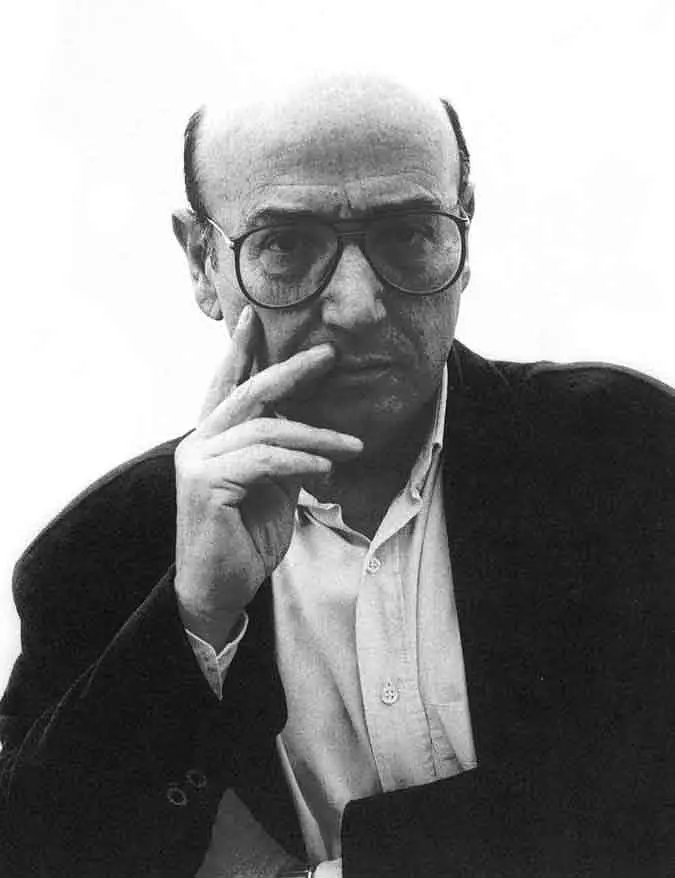
Theodoros Angelopoulos (1935-2012), an international known Greek treasure and a master filmmaker beloved by Chinese cinema fans, left glittering, everlasting memories in the world of cinema with his unique aesthetics of full-length shots, extraordinary scheduling of time and space, and other creative cinematography. Born and raised in the shadow of turmoil, wars, and politics, Angelopoulos devoted his lifetime to the use of film as a means of profound discernment and compassion for history and life.
The journey, the border, the exile, the destiny of human beings, the eternal return—the accents of all these themes reigned over all his works, said Angelopoulos. “Everything one is obsessed with will determine his destiny. One can only make one film in a lifetime, just like variations and fugues of the same theme.” For the film, Angelopoulos once confessed: “If I were lucky enough to choose my own death, I would like to die in the process of making the film,” —and it turned out to be a fatalistic prophecy. On January 24, 2012, while on his way to the set of his new but unfinished film The Other Sea, Angelopoulos died in a car accident, and his life reached eternity in a day about movies.
He has gone, but his films live on. His concern for the fate of family and individual, his reflection on history and politics, and his ultimate search for cinematic aesthetics, among others—when looking back at Angelopoulos’ creations, we will find that he has left important spiritual inspirations for the world today in many senses. On the occasion of the 10th anniversary of Angelopoulos’ death, the Beijing Film Panorama specially organizes a high-profile retrospective of Angelopoulos’ works, screening 14 films from his debut short film The Broadcast to his first feature film The Reconstruction to his final film The Dust of Time, covering masterpieces in his epic movie series—the “trilogy of history”, “trilogy of silence” and “Balkan trilogy”, such as The Travelling Players, Landscape in the Mist, and Eternity and a Day. This aims to provide an in-depth and methodical review of Angelopoulos’ creative career.
The panorama is personally authorized by Phoebe Economopoulos-Angelopoulos, Angelopoulos’ widow, and is supported by the Greek Film Centre (GFC). This is the largest retrospective of Angelopoulos’ films in the past decade in the Chinese mainland, and the majority of his works are being screened in Beijing for the first time.
With this rare film event, we would like to express our deepest respect and memory to this film master.
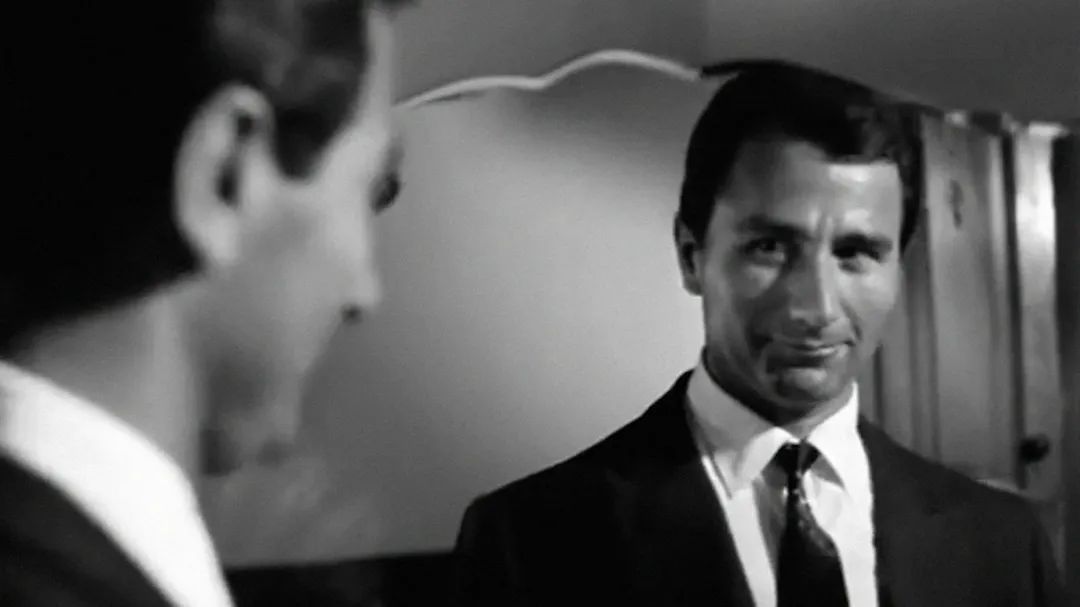
放送 The Broadcast(1968)
The Broadcast is a valuable short film debut by Theodoros Angelopoulos. In the new wave style, it is a reality show about “finding the ideal man”, exposing the illusion of hypocrisy and reflecting on media power.
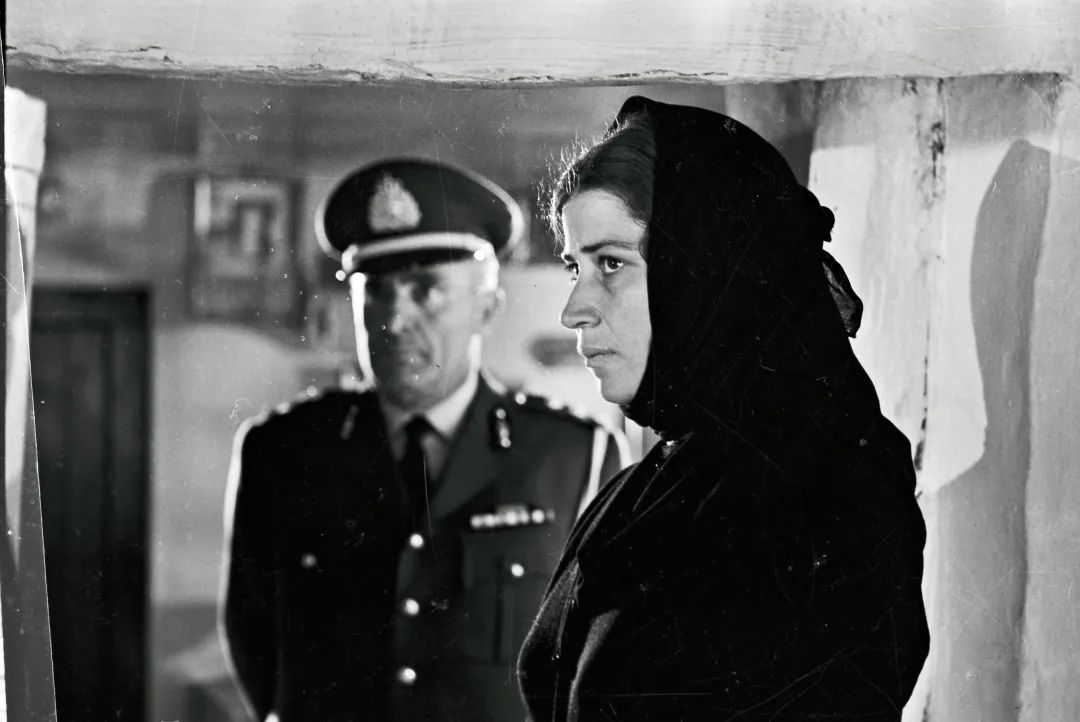
重建 The Reconstruction(1970)
By the time he created his first feature film, The Reconstruction, Angelopoulos’ philosophical consciousness had become clearer. He began to confront the “other Greece” and set his sights on the decaying land where social reality was concentrated. In this extraordinary anti-genre masterpiece, the director focuses on the dilapidated countryside and reflects the social ills of Greece through the “reconstruction” of a murder case. Many of the motifs sprouting from this film continued and were sublimated in Angelopoulos’ subsequent works throughout his life.
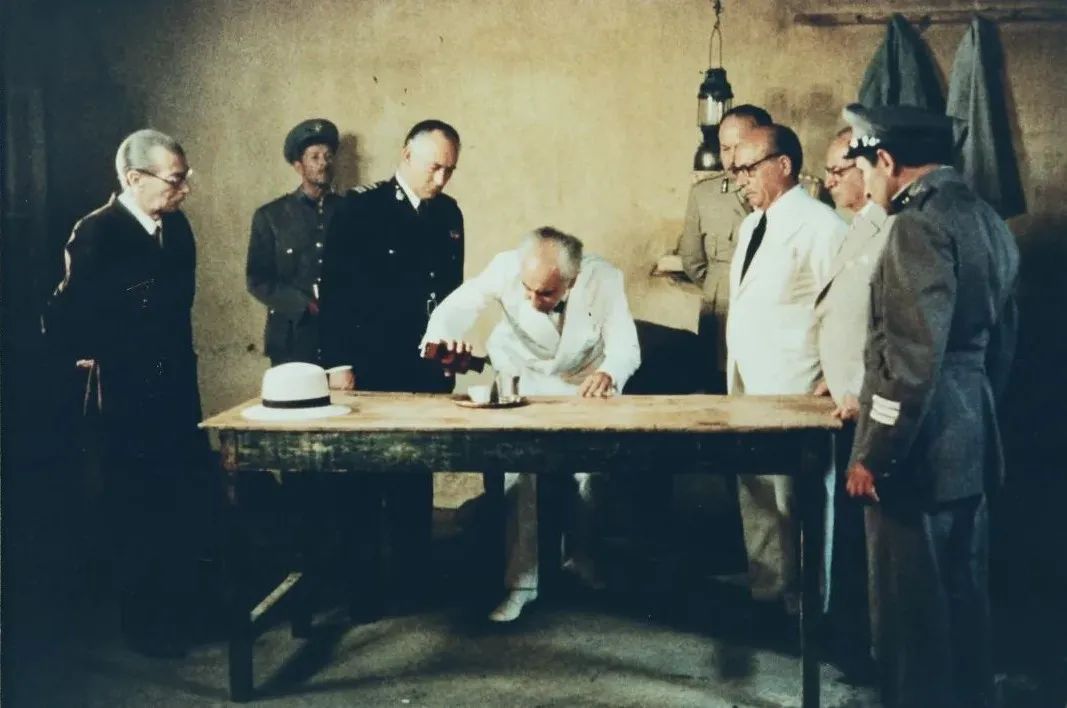
1936年的岁月 Days of 36(1972)
With Days of 36, his first feature-length film in color, Angelopoulos started his “trilogy of history”. This masterpiece, which draws on the past to allude to the dictatorship of the Greek authorities, won the FIPRESCI Prize at the Berlin International Film Festival. The film’s breathtaking scenes with the 720° super panoramic shot and the like also demonstrate his ambition to create an iconic cinematic aesthetic.
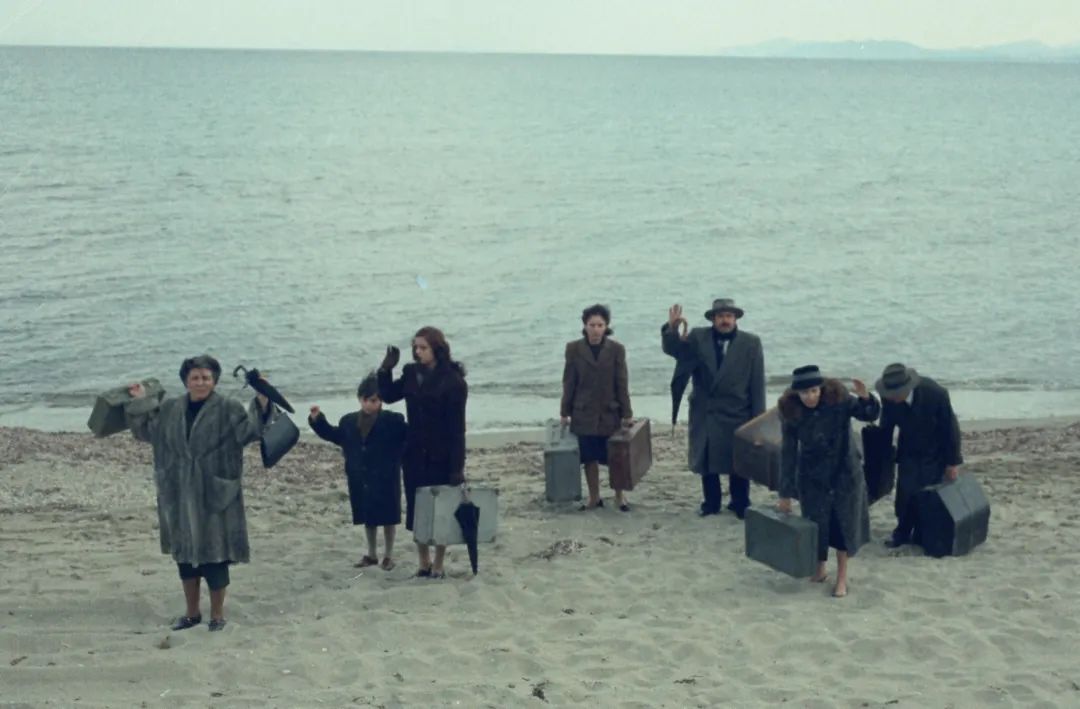
流浪艺人 The Travelling Players(1975)
The Travelling Players, the top masterpiece that made Angelopoulos’ mark worldwide and positioned him as a master, won several awards including the FIPRESCI Prize at The Festival de Cannes. The film depicts the tumultuous history of Greece with a theater troupe’s odyssey from 1939 to 1952, and marks the maturity of Angelopoulos’ film aesthetic. With only 80 camera movements, the film is an epic narrative of nearly four hours.
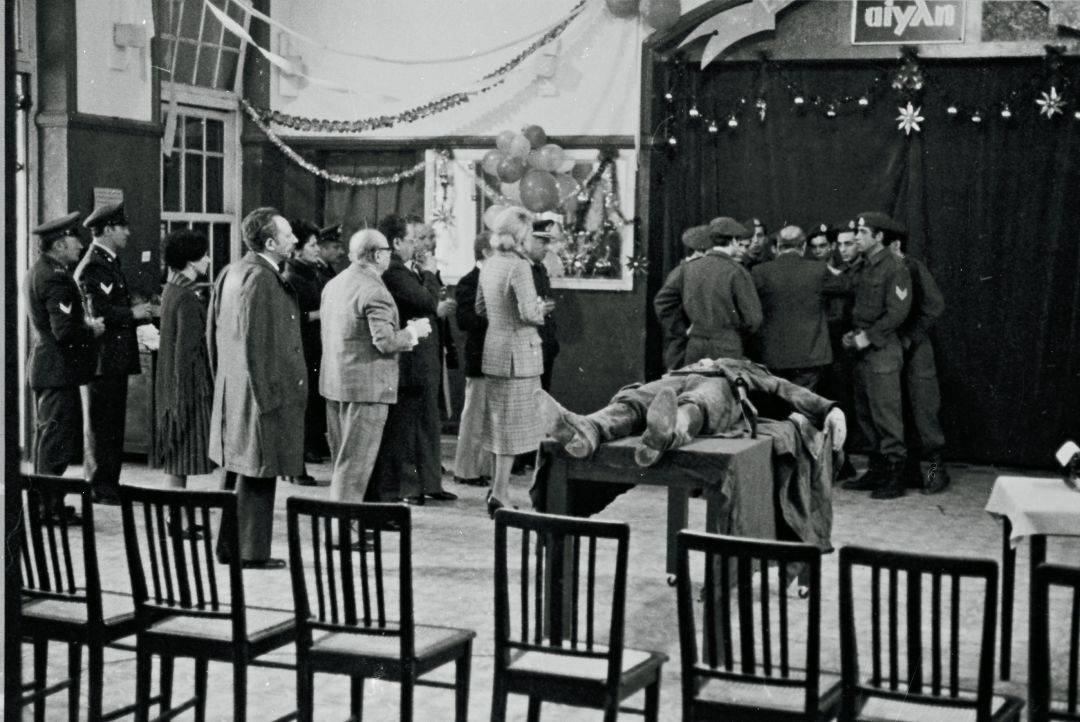
猎人 The Hunters (1977)
The Hunters, the third installment in Angelopoulos’ “trilogy of history”, is an important early work of Angelopoulos. The film leads the audience to witness the ghosts of history showing up at the center of the stage in a stunning and subtle time-to-space conversion.
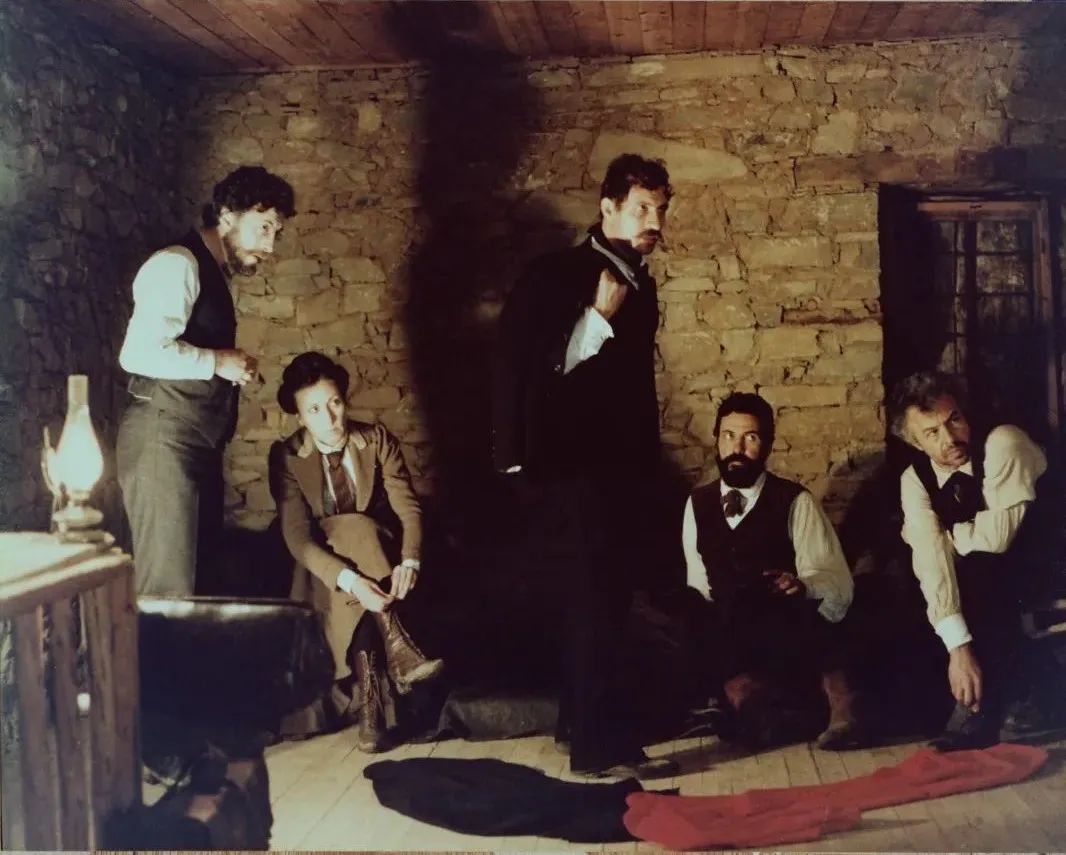
亚历山大大帝 Megalexandros (1980)
Megalexandros is a watershed in the creation of Angelopoulos. With this epic masterpiece, which won the Grand Jury Prize and the FIPRESCI Prize at the Venice International Film Festival, he transcended the political and historical issues that have been the focus of his “trilogy of history”, and made a profound reflection on power and the system itself. The film is also a masterpiece that made Akira Kurosawa praise, “This film makes me feel the joy of the camera, which is the most radical meaning of the art of film.”

雅典,重返雅典古卫城 Athens,Return to the Acropolis (1983)
Athens, Return to the Acropolis is Angelopoulos’ rare and unique documentary. The director frames his signature full-length shots and ingenious adaptation of poetic imagery into this beautiful work, which, together with the narration of memory and the past, completes a journey back to the depths of history.

养蜂人 The Beekeeper (1986)
After the end of his “trilogy of history”, Angelopoulos shifted his focus from the presentation of the masses in the vicissitudes of Greek history to a deeper look at the displaced individuals in the context, and the “trilogy of silence” (also known as the “wandering trilogy”) was thus born.
Nominated for the Golden Lion at the Venice International Film Festival, The Beekeeper is an important installment in Angelopoulos’ “trilogy of silence” series. In this film, Italian legendary actor Marcello Vincenzo Domenico Mastroianni and Angelopoulos collaborated for the first time to write a purely sentimental lament of life.
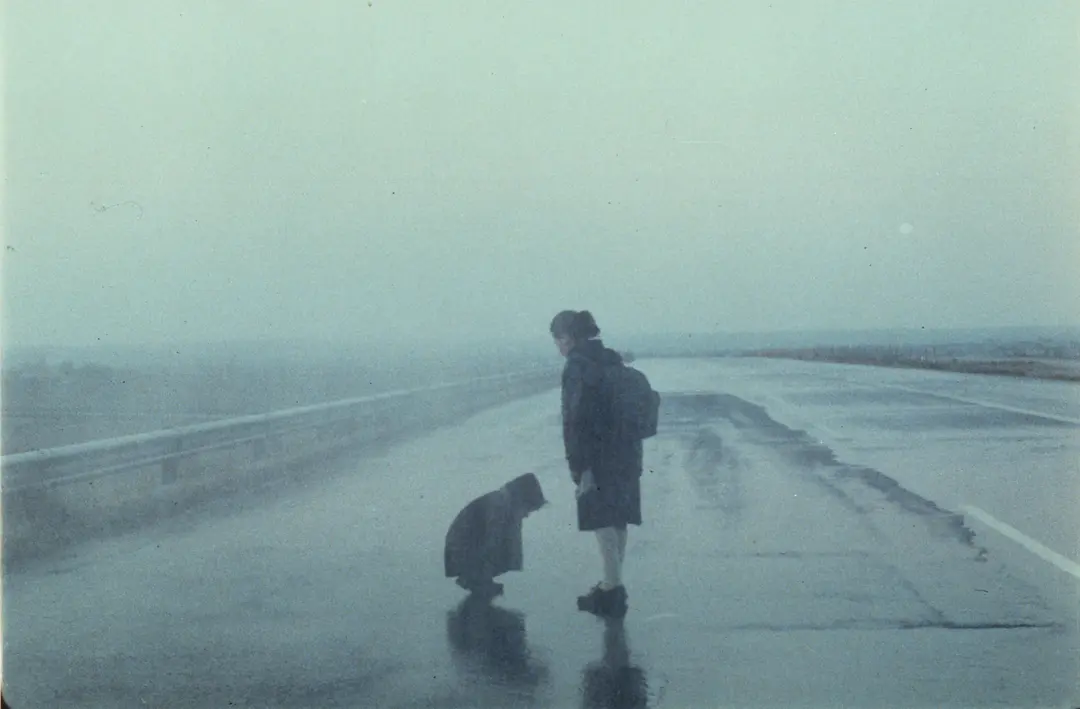
雾中风景 Landscape in the Mist (1988)
As the final installment in this trilogy, Landscape in the Mist is a grim fable about the pursuit and growth. The film, one of the most prestigious and beloved masterpieces of Angelopoulos, received the Silver Lion at the Venice International Film Festival.
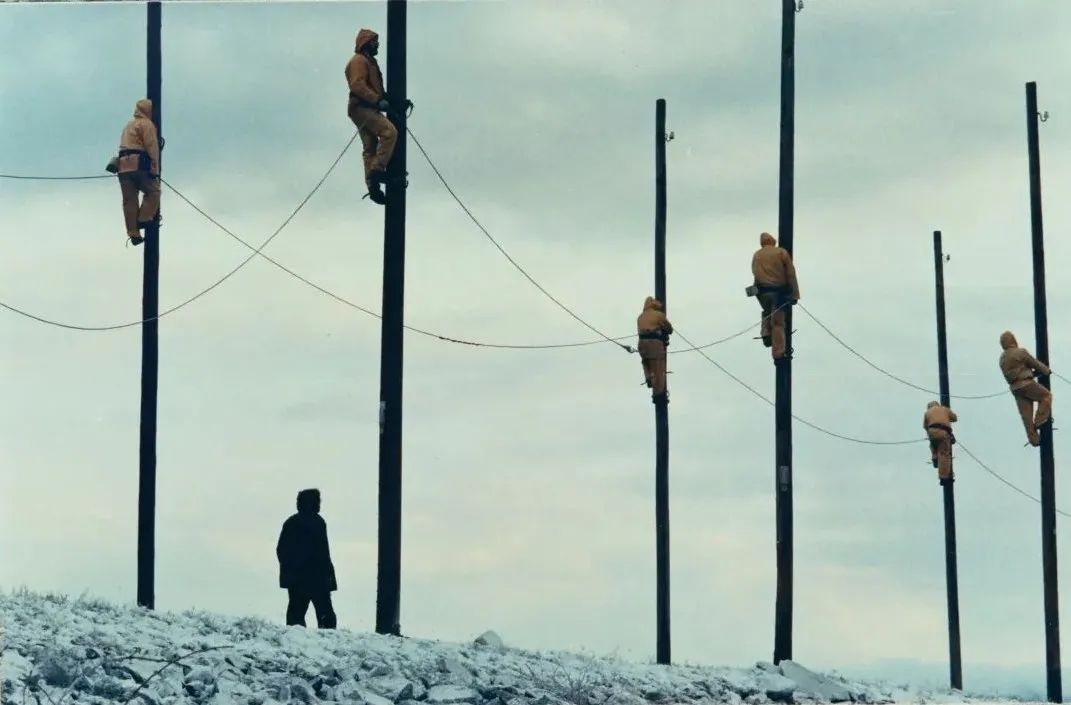
鹳鸟踟蹰 The Suspend Step of the Stork (1991)
In the last decade of the twentieth century, Angelopoulos began to compose the Balkan Trilogy (also known as the “trilogy of borders”), which is more far-reaching and broader in sentiment. The first installment, The Suspend Step of the Stork, focuses on the issue of refugees and the divide and strife in the Balkans amid the melancholy at the end of the century. It is a masterpiece of humanitarianism that is enough on the scroll of fame for a scene of the wedding by the boundary river and a miraculous ending.
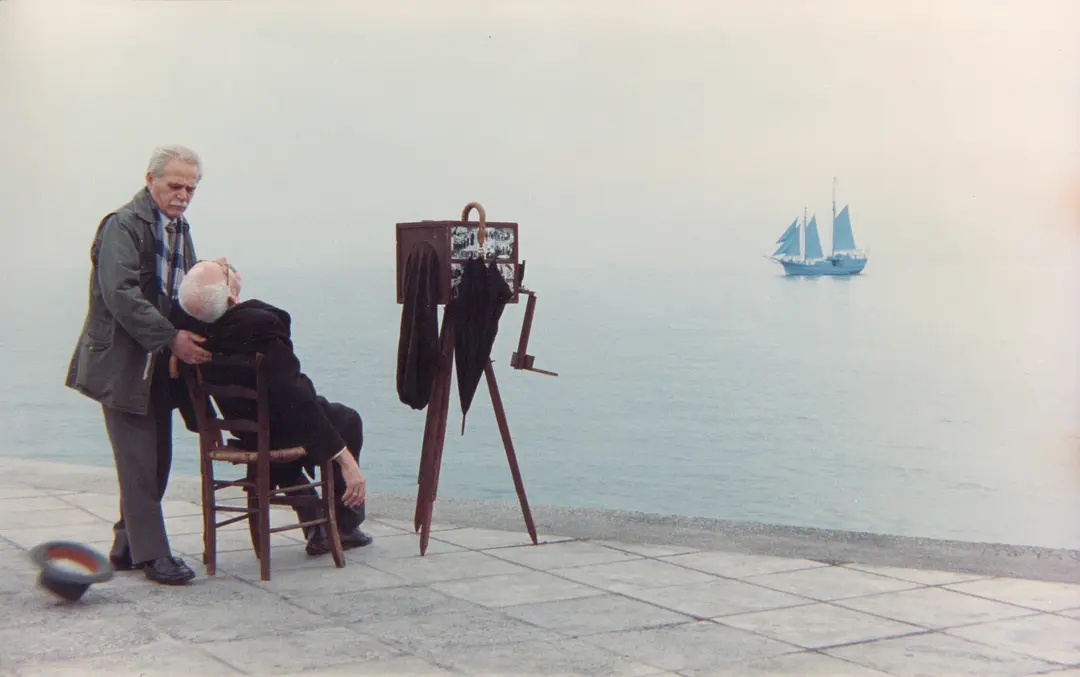
尤里西斯的凝视 Ulysses’ Gaze(1995)
The second installment in the series, Ulysses’ Gaze, is a stunning and fantastic masterpiece that won the Grand Jury Prize and the FIPRESCI Prize at The Festival de Cannes. In this film, Angelopoulos’ unparalleled techniques coalesce multiple narratives in the interplay of time and space—tracing lost film footage, touching the bitter history of the Balkans, and exploring the way back to a wandering mind.
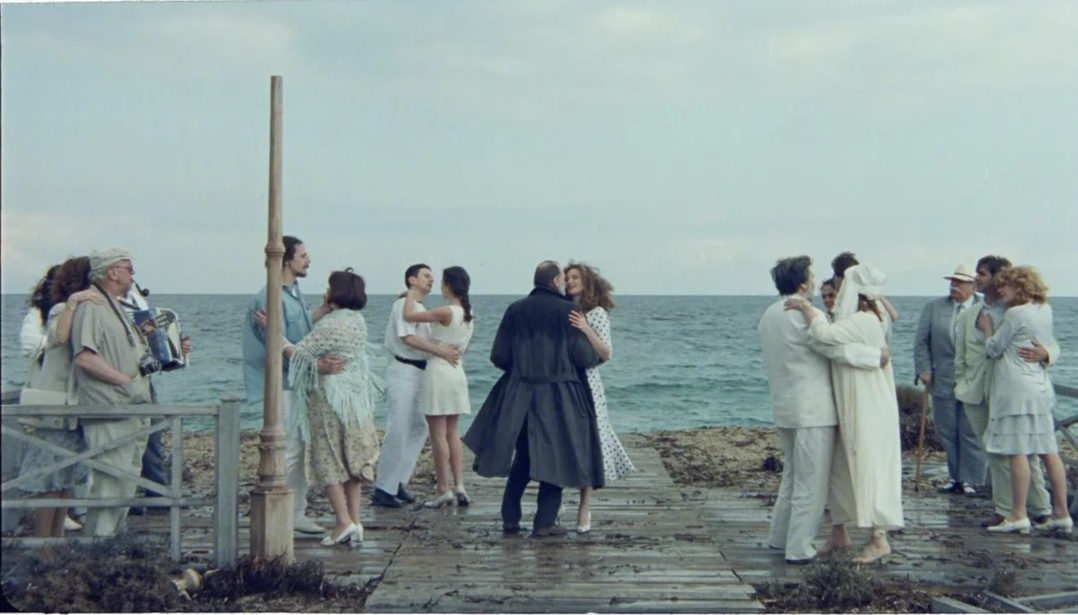
永恒和一日 Eternity and a Day (1998)
As the final installment in the Balkan Trilogy, Eternity and a Day is the most moving and perfect work of Angelopoulos and won the Golden Palm at The Festival de Cannes. The film transcends the figurative thoughts of borders and homeland, and is a poem of immortal images with a deep gaze on death and life, love and loneliness.
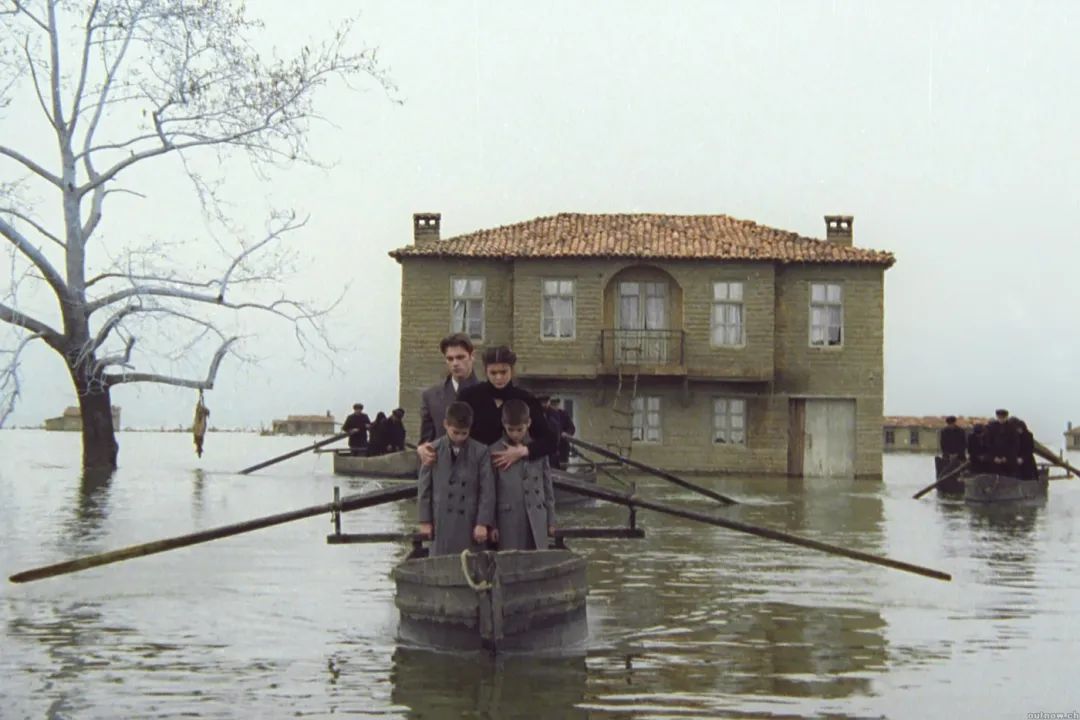
哭泣的草原 Trilogy:The Weeping Meadow(2004)
After thinking about such profound issues as homeland and the border, and life and death, Angelopoulos launched a more ambitious “Trilogy of History” at the beginning of the new century. He believed that this series would be a summary of his achievements across different fields in his lifetime, including literature, philosophy, and film.
In this context, the first part of this trio, Trilogy: The Weeping Meadow, was created. This magnificent and desolate sad epic is a comprehensive expression of Angelopoulos’ film works. The film recreates a household Greek myth with outstanding visual expression and heavy historical vision, and illuminates the changes of the times in the turbulent fate of individuals and families.
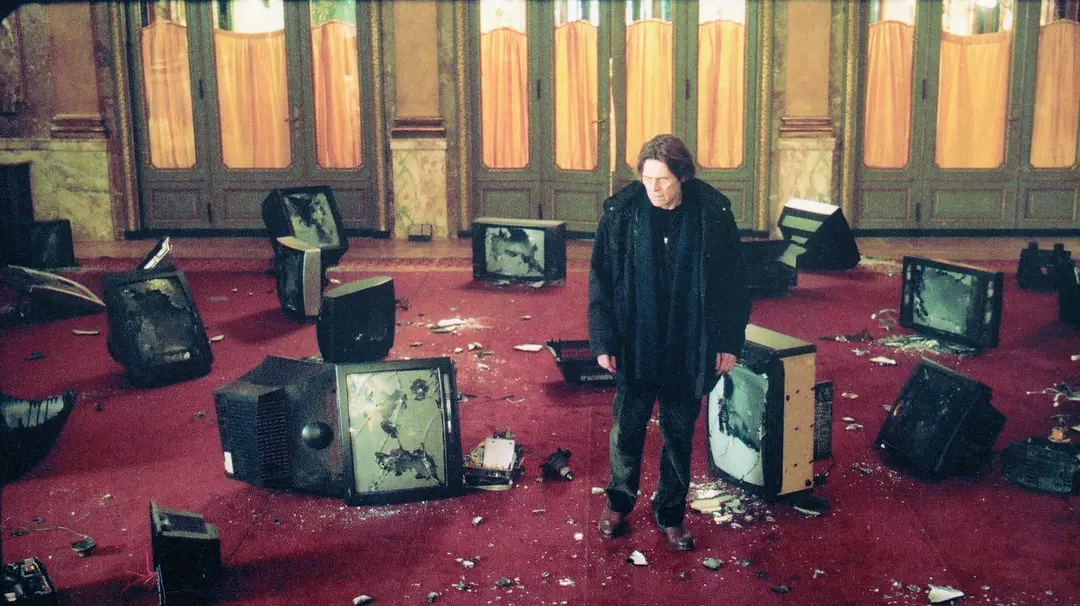
时光之尘 The Dust of Time(2008)
As the posthumous work of Angelopoulos, the second installment in his “trilogy of history”, The Dust of Time reveals the director’s powerful creative vitality in the flow of time and space and the interplay of reality and fiction. It is both an ambitious work that crosses history and borders, and a tender dream of film in the ashes of time.
After receiving the invitation from the Beijing Film Panorama, Mrs. Phoebe Economopoulos wrote in her letter to the BJIFF, “We are very pleased and honored that the BJIFF offers the opportunity to screen Theo’s works, and hope that young audiences in China will enjoy his works as much as those before them!”
Let us witness together the eternal glory of the master’s works, with this precious and sincere wish in mind.

